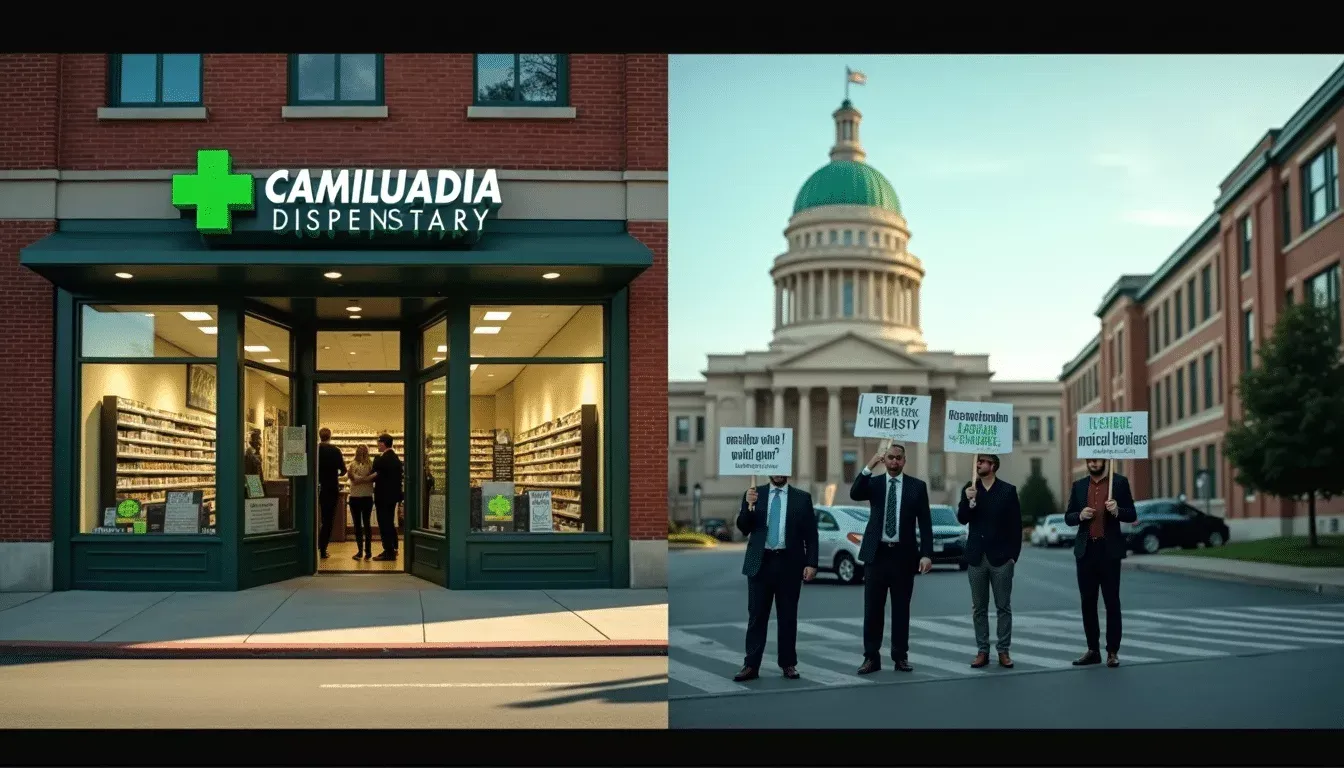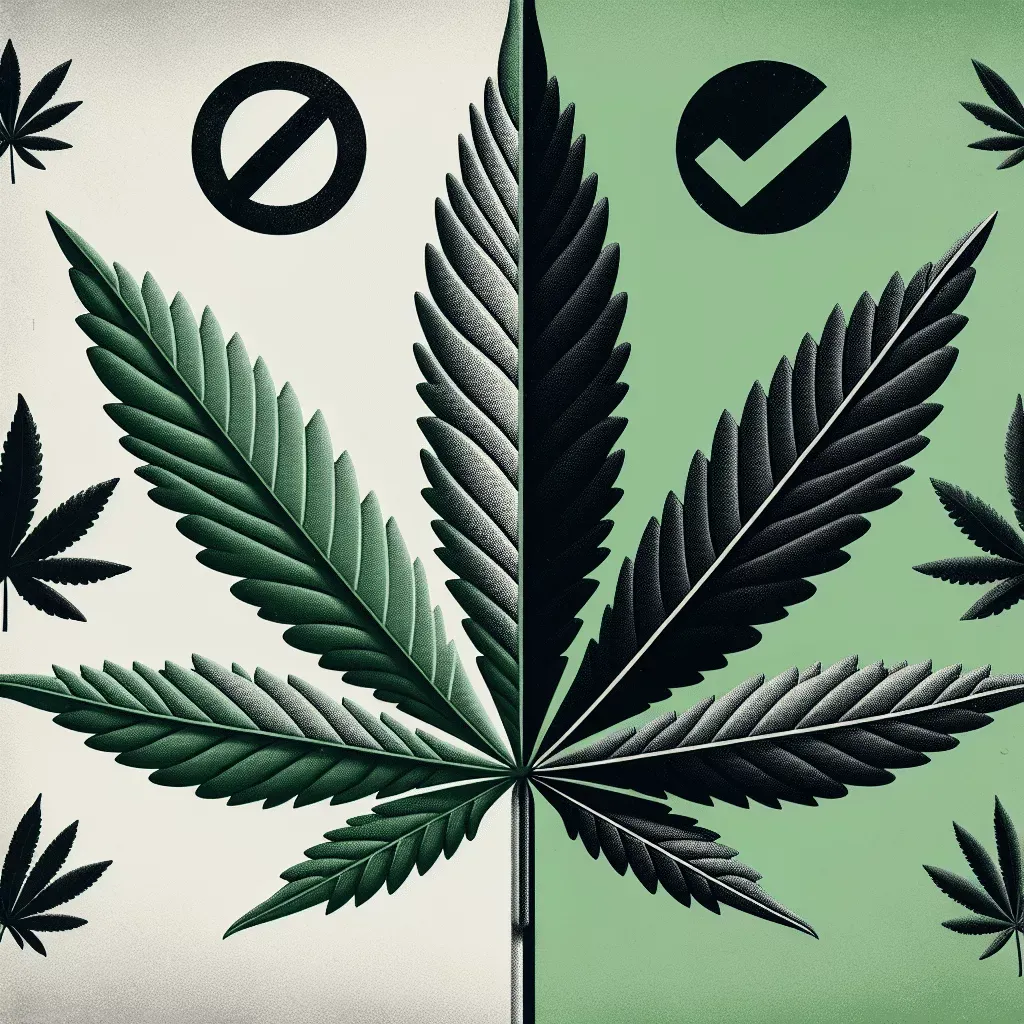Health insurance and medical pot: be careful what you wish for
Introduction: The Intersection of Healthcare and Cannabis
In recent years, the evolving landscape of healthcare has caused many to pause and reassess the role of cannabis as a treatment option. With more states and countries moving towards legalization, whether for recreational or medical use, the bridge between health insurance and medical cannabis is a trending topic of conversations. As someone navigating the complexities of health insurance—or perhaps a curious observer—it’s crucial to explore the nuances involved when considering medical pot coverage. How ready is our system to accommodate this budding venture? As we dive in, you’ll better understand the complexities of health insurance policies and how they relate to medical cannabis.
The Complex World of Health Insurance and Medical Cannabis
Within the realm of health insurance, medical cannabis occupies a unique—and somewhat perplexing—position. Unlike traditional pharmaceuticals that undergo rigorous FDA testing and approval, cannabis resides in a legal grey area. Although numerous studies highlight its potential benefits, its classification as a Schedule I substance in the United States poses significant challenges for health insurers in providing coverage.
The current insurance framework largely overlooks cannabis, leaving patients to foot the bill. Yet, paradoxically, this does not appear to diminish its demand. According to a report by Grand View Research, the global legal marijuana market is projected to reach USD 133 billion by 2028. So, why the disconnect? Partly due to the lack of regulatory standardization and clinical evidence necessary for insurance companies to justify coverage. This becomes problematic as more people turn to medical cannabis as a viable option for pain relief or chronic conditions.
Consider the case of patients suffering from epilepsy or chronic pain who have found relief through medical cannabis. Their narratives are compelling, laden with testimonies of lives improved where conventional pharmaceuticals failed. However, from an insurer’s standpoint, the absence of standardized dosages and potential side effects pose underwriting challenges.
The Potential Benefits and Practical Uses of Medical Cannabis
When navigating the potential benefits of medical cannabis, it’s essential to understand its therapeutic properties. Cannabis has shown promise in treating diverse conditions such as chronic pain, epilepsy, anxiety, PTSD, and even some neurological disorders. Doctors and researchers are increasingly advocating for its use under medical supervision, arguing that it presents fewer risks than opioid-based treatments.
The acceptance of cannabis use for medicinal purposes is not without substantial backing. For instance, the JAMA Internal Medicine journal published a study showing a significant reduction in opiate overdose deaths in states with medical marijuana laws. Such statistics invigorate the conversation around cannabis, indicating its potential to transform the treatment landscape.
While cannabis may not be a panacea, its role as an adjunct therapy cannot be underestimated. Patients who manage conditions like cancer-related pain often use cannabis in conjunction with prescribed medication, optimizing their overall quality of life. Against this background, insurers grapple with balancing patient demands with financial sustainability. The bridge between acknowledgment and coverage is still a work in progress.
Actionable Tips for Navigating Medical Cannabis in the Health Insurance Market
As patients or healthcare consumers, how does one effectively navigate these murky waters? Here are some tips to consider:
- Stay Informed: Understanding your state’s laws can be a game changer. Stay updated on policy changes in your jurisdiction and how they impact coverage options.
- Open a Dialogue: Discuss options with your healthcare provider. Providers might have insights into alternative solutions or clinical trials that could offset costs.
- Explore Flexible Spending Accounts (FSAs): Although rare, some patients manage to use FSA funds for medical cannabis purchases in specific instances. Investigate these possibilities with your employer.
- Advocate for Change: Join patient advocacy groups focusing on insurance reform and access to medical cannabis. Engaging in larger conversations can accelerate policy development conducive to inclusive coverage.
Understanding the financial implications of treatment plans is an essential step toward achieving comprehensive healthcare. Equip yourself with knowledge and advocacy while the industry catches up with patient needs.
Conclusion: Bridging the Gap between Hope and Realities
The integration of medical cannabis into health insurance policies remains an unfolding narrative, with regulatory obstacles presenting real challenges. While promising in many medical circumstances, cannabis is yet to secure a firm foothold within the realm of insured health care. As a trailblazer or a healthcare consumer, being well-informed and proactive is your most potent tool.
As you navigate the complexities of this intersecting world, share your stories, join the conversation, and advocate for broader acceptance. The future of health insurance and medical cannabis holds promise if we collectively contribute to shaping it—and that requires an active, engaged community. For those eager to delve deeper, explore resources linked throughout this article, and don’t hesitate to participate in ongoing discussions in your area.
FAQ: Health Insurance and Medical Pot: Be Careful What You Wish For
1. Does health insurance cover medical marijuana?
Health insurance plans generally do not cover medical marijuana, as it remains illegal under federal law in the United States.
2. Can I pay for medical marijuana with my Health Savings Account (HSA) or Flexible Spending Account (FSA)?
No, medical marijuana is not an eligible expense for HSAs or FSAs because it is not recognized as a qualifying medical expense under the federal tax code.
3. Will using medical marijuana affect my insurance premiums?
Using medical marijuana could potentially affect insurance premiums, particularly life insurance, due to its classification and underwriting considerations.
4. What should I consider before using medical marijuana for my health condition?
Consult with your healthcare provider to understand potential benefits, side effects, and legal implications. Also, review your state’s specific regulations and prepare for out-of-pocket costs.
5. Can medical marijuana use lead to losing health insurance coverage?
While unlikely to result in losing health insurance coverage, medical marijuana use might affect employer-sponsored plans if workplace policies have strict drug-free requirements or if it impacts job performance.
Share this content:



